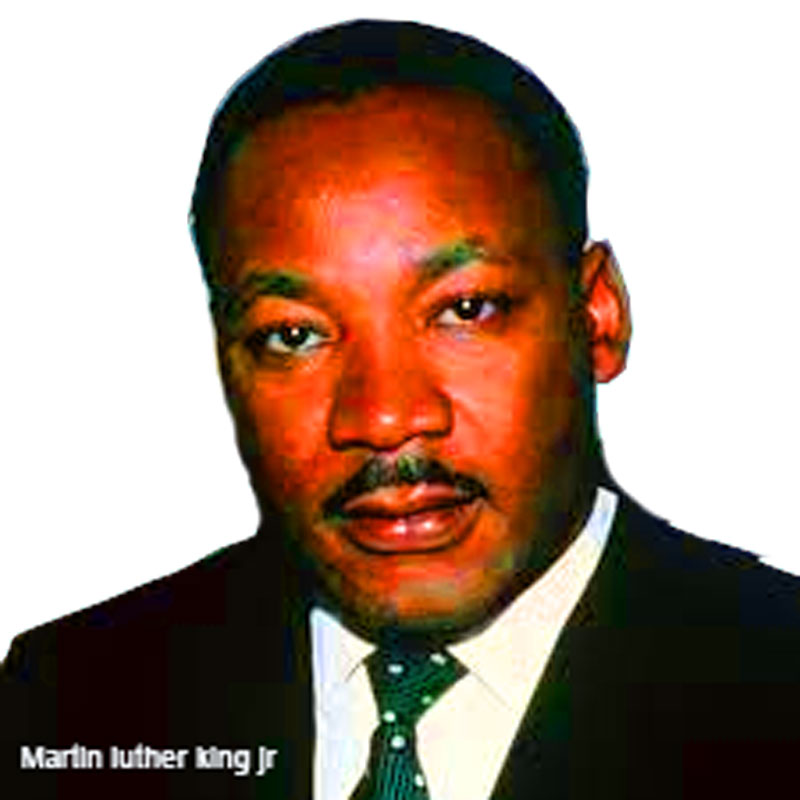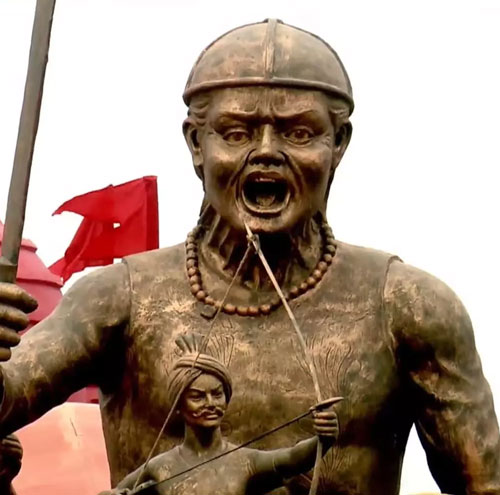Martin Luther King Jr.: The Legacy of a Civil Rights Icon
Martin luther king jr Quotes
“The ultimate measure of a man is not where he stands in moments of comfort and convenience, but where he stands at times of challenge and controversy.”

Martin Luther King, Jr.: Martin Luther King, Jr., was an American political activist and the most famous leader of the American civil rights movement. He was considered a peacemaker throughout the world for his promotion of non-violence and equal treatment for different races.
He was awarded the 1964 Nobel Peace Prize for his efforts. He was posthumously awarded the Presidential Medal of Freedom by Jimmy Carter in 1977; the Congressional Gold Medal in 2004, and in 1986, Martin Luther King Day was established in his honour. He gave his most influential and well-known speech, “I Have a Dream” at Lincoln Memorial in Washington, DC on August 28, 1963. The speech was attended by more than 250,000 people.
Martin Luther King. jr, Born and School life
Martin Luther was born on January 15, 1929 in Atlanta, Georgia (on 501 Auburn Avenue) to Martin Luther King, Sr. and Alberta Williams King. He had a brother, Alfred, and a sister, Christine. Both his father and grandfather were ministers. His mother was a school teacher. She taught him how to read before he went to school. As a child, Martin was so smart that he skipped both the ninth and twelfth! grades.
At the age of fifteen, he applied to Morehouse College Atlanta where he earned his Bachelor of Arts degree in Sociology! Later, he graduated as valedictorian from Crozer Theological Seminary in Chester, Pennsylvania with a Bachelor of Divinity degree in 1951. Martin received a Ph.D. in Systematic theology from Boston University in 1955. On June 18, 1953, Martin Luther King married Coretta Scott. After graduating from college and getting married, Dr. King became a minister and moved to Alabama in 1954 King experienced racism early in life.
Martin Luther King. jr,
He was a true social reformer and decided to do something for the betterment of the people and to make the world a better and fairer place to live in. During the 1950’s Dr. King became active in the movement for civil rights and racial equality. He participated in the Montgomery, Alabama, Bus Boycott and many other peaceful demonstrations that protested the unfair treatment of African-Americans.
The Montgomery Bus Boycott lasted for 382 days. The situation became so tense that King’s house was bombed. He was arrested during this campaign. At that time, he was only 27 years old. He was arrested thirty times for his participation in the civil rights activities.
In 1965, Dr. King assisted in the planning of a 50-mile march from Atlanta to Montgomery, Alabama. Its goal was to raise awareness about Black people’s voting rights. The police retaliated by pepper spraying and slapping the marchers. The events were shown on television, and the day was dubbed “Bloody Sunday.” They landed in Montgomery five days later, where Martin Luther King, Jr. conducted a protest in front of the state capitol. The demonstration drew a crowd of more than 20,000 people.
He began to shift the focus from civil rights to economic reforms in the period between 1966 and 1967. He began to talk about the nation’s wealth compared to the poverty of the Blacks. In 1967, he started planning a Poor People’s Campaign to pressurize the nation’s lawmakers for economic reforms. He sent the Blacks into White neighborhoods to protest economic injustice. Sadly, many of these protests ended with violence despite his non-violence movements.
Martin Luther King jr Death
On April 4, 1968, King was shot by James Earl Ray while standing on the balcony of the Lorraine Motel in Memphis, Tennessee. Friends inside the motel room heard the shots and ran to the balcony to find King shot in the throat. He was pronounced dead at St. Joseph’s Hospital at 7:05 p.m. The assassination led to a nationwide wave of rots in more than 60 cities. A crowd of 300,000 attended his funeral that took place five days later. He was only 39 at the time of his death. Dr. King was turning his attention to a nationwide campaign to help the poor at the time of his assassination.




